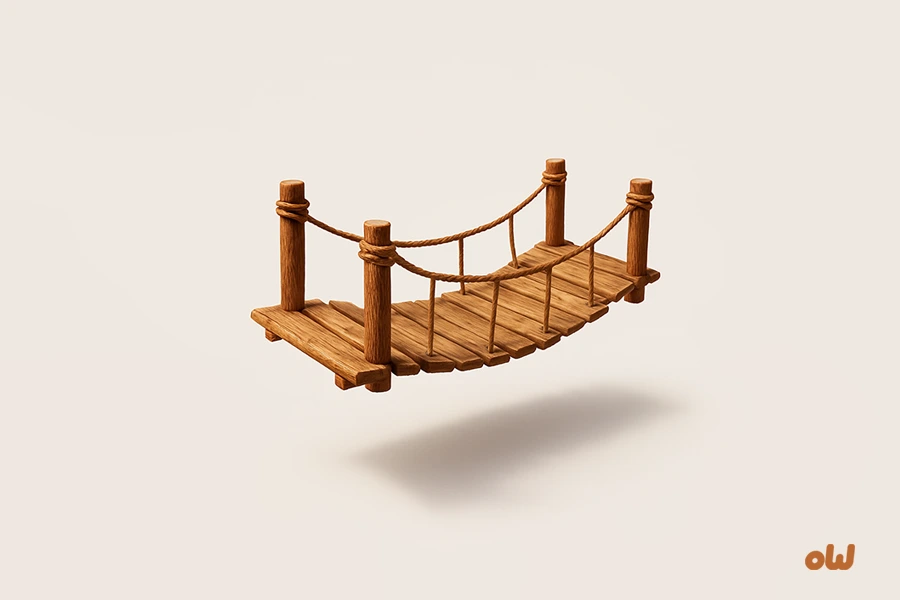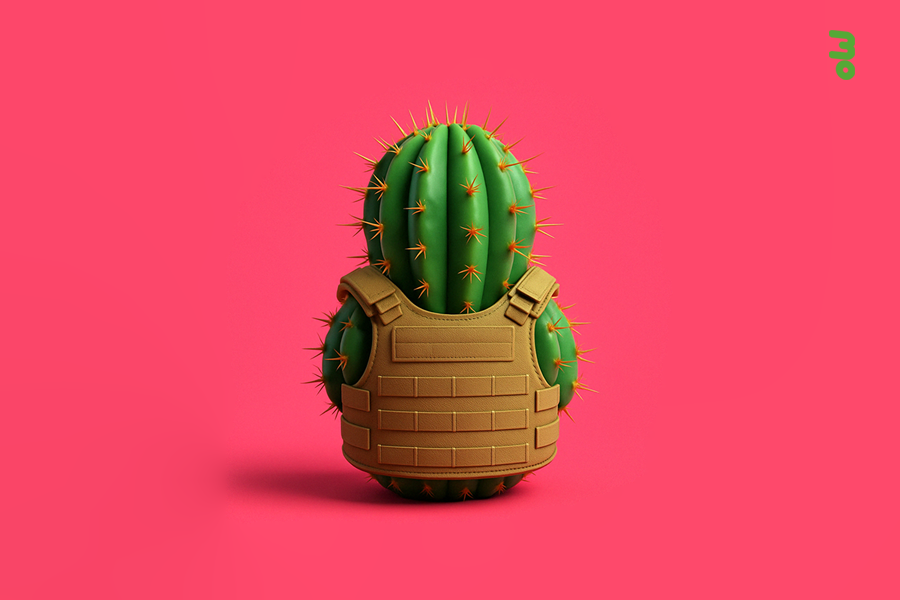Quiz: How Brave Are You?

When was the last time you did something truly scary? No, we’re not talking about skydiving or swimming with sharks. Remember that moment when your heart was pounding like crazy before an important conversation with your boss. Or when your fingers were trembling as you typed a message to someone you liked. These moments reveal our bravery much more honestly than any extreme adventures. And our quiz will help you figure out exactly which type of courage you’ve developed most strongly.
What is True Bravery?
Forget Hollywood movies with their explosions and chase scenes. Real bravery lives in office corridors, family kitchens, and messenger chats. It’s when a programmer, after five years of silence, says at a planning meeting that the current project architecture is complete garbage. It’s when a mother of three children goes to driving school at 35, even though her hands shake at the mere thought of the steering wheel.
Bravery is action despite fear, not its absence. A brave person’s knees shake too. They just take a step forward anyway. Research shows that about 75% of people experience fear of public speaking more intensely than fear of death. But every day thousands of people take the stage, give presentations, defend their dissertations. They didn’t stop being afraid – they learned to act with fear in their pocket.
The most interesting part: bravery trains like a muscle. Every time you do something despite fear, the next time becomes a little easier. The brain remembers: “Oh right, we’ve been through this before, and nothing terrible happened.” True, there’s a catch – everyone has their own comfort zone and their own set of fears. What’s an ordinary Tuesday for one person is the feat of the century for another.
Fear vs Courage: The Battle Inside Us
Inside each of us, there’s a constant fight going on. In one corner of the ring is fear, whispering: “Don’t stick out, or things will get worse.” In the other corner is courage, egging us on: “Come on, give it a try, maybe it’ll work out.” And you know what? We need both of these fighters.
Fear is our personal bodyguard, inherited from our ancestors. It saved humanity from extinction when our great-great-grandparents were deciding whether to check what was rustling in the bushes. The problem is that this bodyguard is a bit behind the times. It still considers giving a presentation to colleagues or changing jobs to be mortally dangerous.
Modern fears rarely threaten our lives, but the brain reacts to them the same way as to a saber-toothed tiger: adrenaline rush, rapid heartbeat, the urge to run or hide. That’s why before an important phone call we might pace around the room for an hour, rehearsing the conversation. Or postpone going to the dentist until the tooth starts hurting so much that fear takes a back seat.
Courage doesn’t kill fear – it negotiates with it. “Okay, I understand your concerns,” it tells fear, “but let’s try anyway. If something goes wrong, we have a plan B.” And that’s the whole point: brave people aren’t fearless people. They just learned to negotiate with their fears.
Discover Your Type of Bravery with Our Quiz
Each of us has our own bravery profile – areas where we’re braver, and zones where fear wins more often. Someone easily bungee jumps but can’t confess their love. Another calmly speaks before a thousand-person audience but panics at the sight of a spider.
Our quiz is built on analyzing various life situations. We don’t ask whether you’d bungee jump off a bridge – that’s too simple and says little about everyday bravery. Instead, the questions concern real dilemmas: are you ready to apologize first after a fight? Can you say “no” to pushy relatives? Would you quit without another job offer?
The results will show not only your overall level of bravery but also its structure. You might discover that emotionally you’re a real daredevil, but you avoid physical risks. Or vice versa – extreme sports don’t scare you, but a heart-to-heart conversation causes panic.
Knowing your type of bravery isn’t just amusing information for reflection. It’s a tool for development. Understanding your strengths and weaknesses makes it easier to work on yourself. If you know your social bravery is lacking, you can start small – ask a question at a meeting or get to know a new colleague.
Types of Bravery Featured in Our Quiz That You Might Discover in Yourself
The quiz identifies four main types of bravery, and each person has developed them differently. Someone might turn out to be a champion in emotional courage but an underdog in physical bravery. Another will be surprised to discover powerful moral bravery in themselves while completely failing in the social realm. And that’s normal – we’re all brave in our own way.
Physical Bravery – Body Against Instincts
This is the classic type. The ability to overcome fear of physical pain, injury, or discomfort. This includes everything from going to the dentist to practicing contact sports. People with developed physical bravery are the first to volunteer for blood donation, calmly get vaccinations, and don’t panic at the sight of blood.
Interesting fact: physical bravery often isn’t connected to other types. A heavyweight boxer might be afraid to admit to his wife that he spent his bonus on a new gaming console. And a fragile girl who faints at the sight of a needle might be able to fire half the department without a tremor in her voice.
Emotional Bravery – Feelings on the Outside
The most underrated type of bravery in our society. This is the ability to be vulnerable, show your true feelings, ask for help. Say “I love you” first. Admit you can’t cope. Cry in front of everyone when it hurts.
Emotionally brave people aren’t afraid of intimacy and openness. They can discuss difficult relationship topics without running away to work or alcohol. They go to therapy when they need help, rather than suffering alone for years.
Social Bravery – Against the Current
Express an unpopular opinion. Skip the office party when everyone’s going. Show up to a party where you don’t know anyone. Social bravery is the ability to go against group pressure and not fear judgment.
In the age of social media, this type of bravery becomes especially important. Write a post that will definitely cause arguments. Don’t like posts out of politeness. Delete toxic people from your friends, even if they’re relatives or colleagues.
Moral Bravery – Principles Above All
The most complex type. This is when the right action might cost you money, career, or relationships. Report your boss’s violations. Refuse a profitable but questionable deal. Defend someone being bullied, risking becoming the next victim.
Moral bravery requires not just overcoming fear, but having a clear internal compass. You need to understand your values and be ready to pay for them. This is a rare type of bravery, and society often punishes it more than it rewards it.
Female and Male Bravery: Gender Aspects in Our Quiz
Let’s be honest: society still evaluates men’s and women’s bravery differently. Men are expected to show physical courage and emotional restraint. Women are expected to show emotional openness but physical caution. These stereotypes are so ingrained that many don’t even notice their absurdity.
A man who’s afraid of fighting is considered a coward. A woman who isn’t afraid is considered reckless. A man cries in public – he’s weak. A woman doesn’t cry – she’s heartless. It creates a vicious circle where no one can be themselves.
Our quiz doesn’t divide bravery into male and female. The questions are the same for everyone, because fear of darkness, heights, or rejection doesn’t check your passport. But the results might show how gender stereotypes influence your perception of your own bravery.
Women often underestimate their courage because it manifests in the “wrong” areas. Giving birth, surviving toxic relationships, building a career in a male-dominated field – all of this requires enormous bravery, but is rarely recognized as such. Men, meanwhile, might not notice how fear of appearing weak prevents them from being emotionally brave.
It’s time to acknowledge: bravery has no gender. It has many forms, and each one is equally valuable. It doesn’t matter what stereotypes say – what matters is what you feel and how you act. The quiz will help you see your unique map of bravery without looking back at what’s “supposed” for your gender.
Questions Overview 🧠
- Name it Gerald and continue scrolling on your phone
- Trap it under a glass and deal with it tomorrow
- Sleep on the couch and call someone in the morning
- Pack your essentials and check into a hotel
- Finally, a real adventure begins!
- Time to use those survival skills from YouTube
- Better find the trail before sunset
- Why did I leave my couch?
- Steal the show with improvised comedy
- Play along and bow when it's over
- Freeze but manage a nervous smile
- Pretend to take an urgent phone call
- Two servings, please!
- One small bite for the experience
- Ask twenty questions first
- Suddenly remember you're vegetarian
- Can we do it right now?
- Schedule it after researching the procedure
- Get three more opinions first
- Consider if teeth are really necessary
- Confront them directly
- Quietly alert store security
- Make eye contact to show you saw
- Suddenly need something in another aisle
- Already started packing
- Take intensive language lessons and go
- Negotiate for remote work instead
- Dream jobs are overrated anyway
- Bohemian Rhapsody with all the voices
- A crowd-pleaser you know well
- A duet so you're not alone
- The sound of silence... literally
- Set up cameras for your paranormal YouTube channel
- Research the house's history thoroughly
- Burn sage and hope for the best
- List it on Zillow immediately
- Full sleeve, no regrets
- Small meaningful symbol after consideration
- Temporary tattoo to test it out
- A firm 'no' and suggest friendship bracelets
- In the front row with hands up
- Middle seat, holding the safety bar
- Taking photos of others riding it
- Enjoying the gift shop
- Double down with a joke about it
- Send a professional follow-up explanation
- Claim your phone was hacked
- Start updating your resume
- Try to identify its species up close
- Give it space and carefully pass
- Wait for other hikers to go first
- This hike is officially over
- Why wait until tomorrow?
- Let me check the weather and safety records
- Can I watch you go first?
- I'll be your ground support






